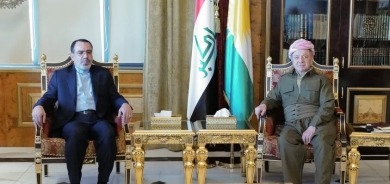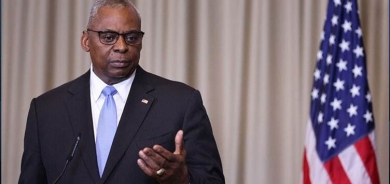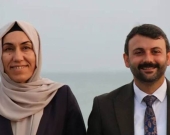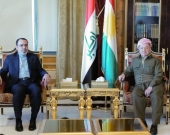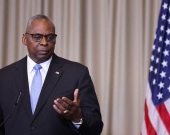Leaked memos reveal Bin Laden warned of mass hunger in Islamist Egypt

In one of 17 documents released by the U.S.-based Combating Terrorism Center (CTC), Bin Laden cites the challenges facing Egypt’s would-be Islamist rulers, the online edition of Egypt’s al-Ahram daily reported.
The documents were seized from Bin Laden’s residence in Abbottabad, Pakistan, where he was killed by U.S. special forces in May 2011.
“Before building a Muslim state, the Islamic Group [Jamaa Islamiya] could have thought about food security for the Egyptian people,” Bin Laden wrote in one memo, referring to the Islamist group involved in the assassination of former Egyptian president Anwar al-Sadat.
Sadat was assassinated by the group during a military parade in Cairo on Oct. 6, 1981.
The group aimed at establishing an Islamic state in Egypt and planned to seize control of government buildings and media outlets. But Bin Laden claimed in his memo that their plans overlooked vital issues related to Egypt’s economy and food supply, according to al-Ahram report.
Bin Laden wrote: “If God had willed for the Islamic state to be born in Egypt, it would have not probably lasted more than a few weeks.” He explained that international sanctions would have led to starvation due to the country’s then reliance on American wheat.
Bin Laden claimed that, at that time, Egyptians relied on 150 million loaves of bread per day,
The comment reflected Bin Laden as someone willing to abandon his cherished dream of setting up an Islamic state in Egypt if the price was the welfare of the population.
Al-Qaeda leader asked “what would happen when Egypt could no longer import wheat from its major supplier, the United States?” He added that Egypt’s wheat reserves were only enough for two weeks’ worth of food and that its government had abandoned plans to make the country more self-sufficient.
According to the released memo, Bin Laden wondered: “How long would the public tolerate having to go without [bread]?” he asked. “That has nothing to do with whether the public liked or disliked the Islamic state. A dangerous shortage of food causes death and people do not want to see their children die of hunger.”
Egypt’s first post-Mubarak presidential election is scheduled on May 23-24. Islamists are among the top contenders, including Muslim Brotherhood top figure Mohammed Mursi and ex-Brotherhood member Abdul Moniem Abul Fotouh.
Bin Laden said that -- unlike Somalia or Afghanistan, where people could depend on agriculture and livestock -- Egypt could not survive the “unconventional weapon” of economic sanctions.
“The Afghan population is considered to be outside the modern-state system, and unlike Arab populations,” he wrote. The comment suggested a man somewhat different from the stereotype of a pitiless terrorist leader.
The documents, dating from September 2006 to April 2011, included 175 pages of emails and draft letters written in Arabic by several al-Qaeda figures, including Osama bin Laden himself.
The CTC had warned of possible problems with its English translations, and recommended that the documents should be read in the original language, according to the report published by al-Ahram.
Al-Ahram report cited the preface to CTC’s study, published on its website, admitting that in contrast to his public statements that focused on the injustice of those he believed to be the “enemies” of Islam, namely “apostate” Muslim rulers and their Western “overseers,” the focus of Bin Laden’s private letters was Muslim suffering at the hands of their jihadi “brothers.”
Bin Laden advised them to give up attacks that cause Muslim civilian casualties and focus on the “desired goal” which is the United States.
The released documents reflected Bin Laden’s frustration with regional jihadi groups and his inability to control their actions, according to al-Ahram report.
By AL ARABIYA





